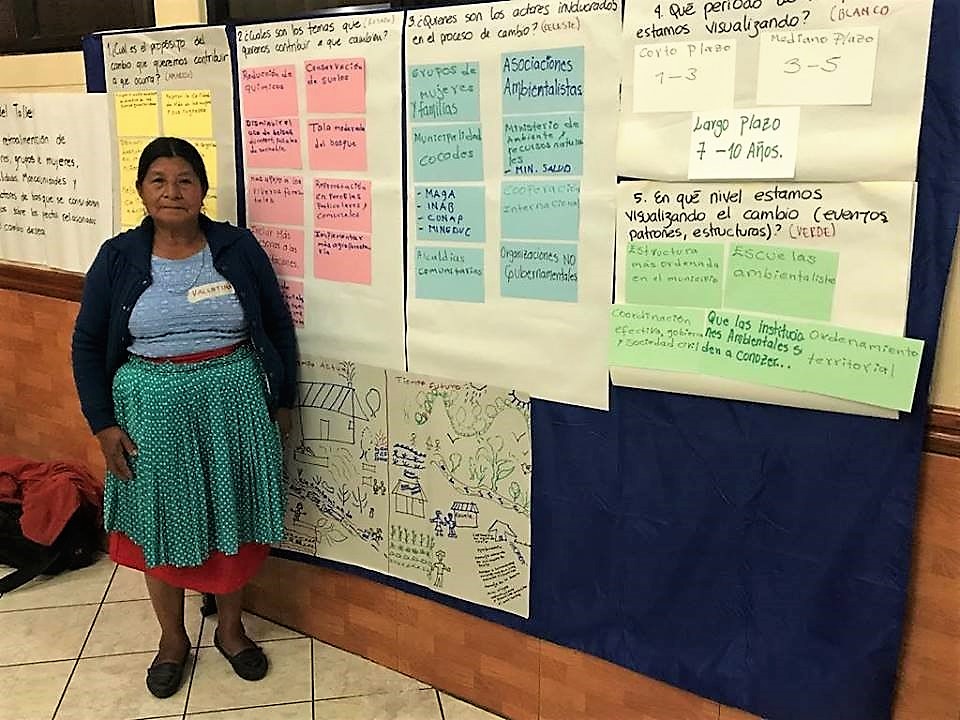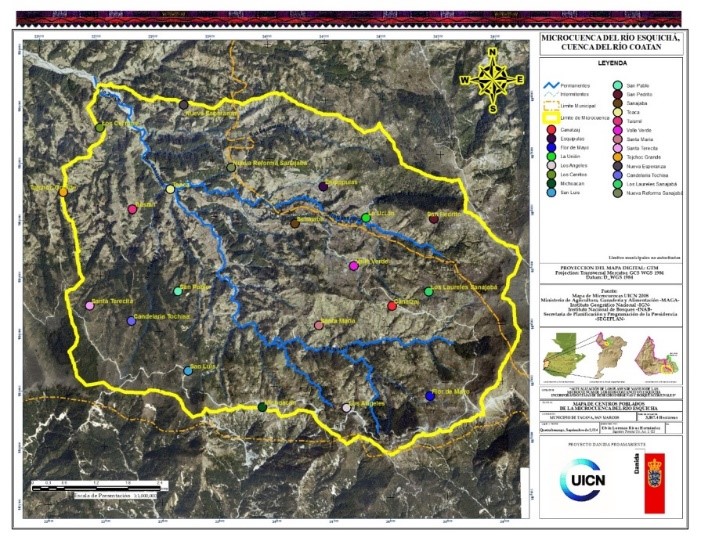


Les options de gouvernance et les réponses à l'adaptation au changement climatique sont nouvelles et doivent être en constante évolution ; les décisions et le plan de gouvernance doivent être flexibles ; l'adaptation doit donc progresser dans le cadre d'une approche flexible. Cela est possible grâce à l'application de mesures d'EbA avec un "apprentissage par la pratique" tout en utilisant les meilleures informations scientifiques disponibles sur les scénarios climatiques et en informant les instruments politiques locaux et nationaux.
La vulnérabilité climatique d'Esquichá a été évaluée à l'aide de l'outil CRiSTAL ("Community-basedRisk Screening Tool- Adaptationand Livelihoods").
Après une première planification des activités d'EbA, les actions d'intégration de la flexibilité ont été les suivantes :
- L'évaluation périodique des actions EbA sur le terrain et l'adoption de décisions à court terme.
- Les résultats du suivi et de l'évaluation seront essentiels pour inclure des ajustements importants.
- l'inclusion de mesures d'EbA dans le plan de gestion du micro-bassin
- L'évaluation des mesures pour informer le plan de développement de la municipalité.
- Information des résultats aux autorités compétentes comme la municipalité de l'Institut forestier (INAB). Cela a conduit l'INAB à rechercher des outils pour améliorer la façon dont les incitations sont attribuées et pour identifier les communautés situées dans des zones de captage d'eau clés.
- L'intérêt politique pour l'intégration de l'EbA et des critères de sécurité de l'eau dans les programmes d'incitation forestière s'est accru.
- Intérêt politique de la municipalité de Tacaná.
- Capacité technique de la municipalité de Tacaná.
- Les informations doivent intégrer les sciences (physiques, biologiques, économiques et sociales) et les connaissances traditionnelles et autochtones.
- L'approche "apprentissage par l'action" ou "apprentissage par la pratique" est un élément clé de la flexibilité de la gouvernance en matière d'adaptation. Des améliorations constantes doivent toujours être recherchées et les pratiques, stratégies et politiques qui contribuent à accroître la résilience socio-environnementale doivent être évaluées. Grâce à cette approche, les membres du conseil du microbassin de la rivière Esquichá sont plus conscients, d'une part, des cadres juridiques et politiques qui facilitent la gouvernance multidimensionnelle et l'articulation nécessaire pour faire face au changement climatique et, d'autre part, de la nécessité de suivre et d'évaluer, au fil du temps, les avantages que les écosystèmes apportent à l'adaptation et aux moyens de subsistance locaux.